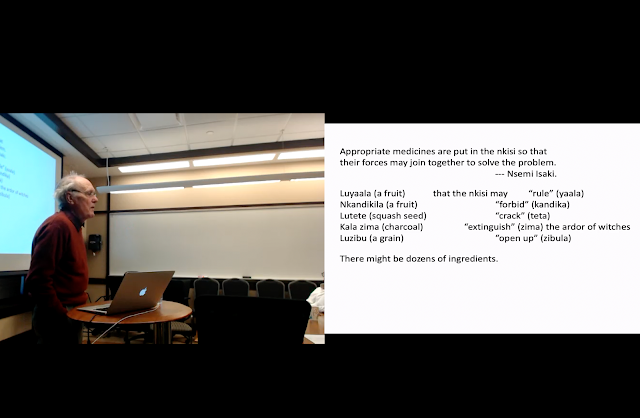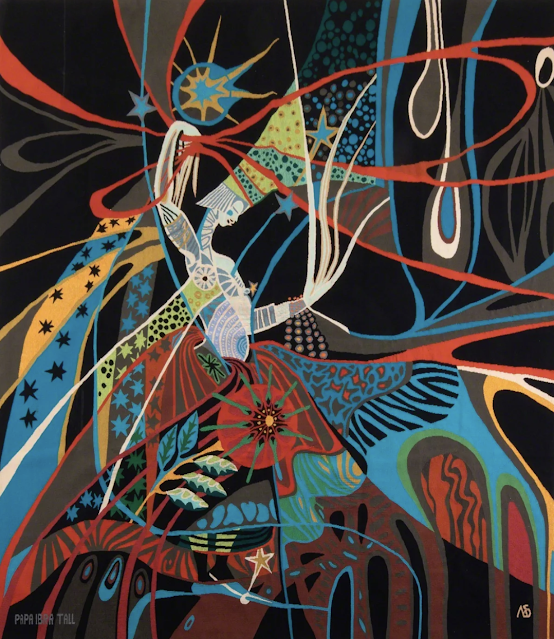ASSIGNED VIEWING - Nkisi as Opera!
Was recently reminded of a painful conversation where the other party misinterpreted my use of the word "fetish" - channeling the emotions positively. The other entries in this sporadically updated series are NOT lectures and I get that watching a dude talk for two hours (it's mostly conversation, the lecture portion is maybe 30 mins) is not as fun as a doc or ballet but I feel guilty about spending so much time on Thornton in the last post. Most famous as "the other old white guy who does a lot of Kongo stuff," Wyatt MacGaffey is a titanic figure in West-Central Africana; much of what we currently believe about early colonial spiritual systems and magical practice is built on his research in some way. MacGaffey hasn't received nearly as much love bc he:
a) was open about his disdain for universities as an institution before it was sexy to talk about le decolonizing
b) wound up being pigeonholed as a historical anthro guy, tho the modern field of African hist has been at the forefront of cross-disciplinary practice from its inception
This lecture is a capsule summary of some ideas he's been writing about since at least the 80s and does a great job of explaining the metaperformance aspects of nkisi use. It's pretty amusing too, imo. Dog goes"if you're gonna fight witchcraft and stuff, you've got to make some noise" before leading a room of ~five grad students and a prof in an invocation + there's a funny anecdote about a trashy failed doc called "African Death Gods." Great stuff all around.




The lecture is *fascinating* though I admit I didn't make it through the whole Q&A. The invocation was really cool, and I can absolutely see how this became a kind of spectacle - I don't know if this is a great parallel but as a musician, it feels to me like the nkisi might have been something like an analog to a named musical instrument -something like BB King's Lucille or Clapton's Blackie or Bo Diddley's Big B, maybe, though obviously the comparison has some limitations. The guitar examples are probably the most famous, but I'm certain that has happened with other instruments through the years. Cars might be another modern comparison, with both cars and musical instruments, some people tend to name them and think of them as if they have personalities, and get rid of them if they don't produce the desired result, but treat them with a certain amount of love and respect if they do, and they can almost acquire their own place in a social circle or band (presumably) the way an nkisi and the operating nganga might have a place among their people.
ReplyDeleteThis might be an imperfect metaphor but the more I think about it the more I like it. Please let me know if it's ass! I doubt I'll have a chance to sit down and ask Wyatt if it is a useful way of thinking about things so I'm counting on you!
Nah dude this is an excellent analogy - there's a certainly a similarity in the ways they are instrumentalized (hah) + your point about the attribution of personalities/soul force to the object is well-made. I think it might work even better than the stage prop analogy bc it shares the "primary usage can't be understood outside living performance" element but really famous instruments can have second lives beyond that embedded presence in the way nkisi transformed into art do. Also the parts where it breaks down - the nkisi's use as a cosmological model or a combined representation of spiritual agent/afflicted/afflicter - are not really present in the prop analogy either. Not even sure there's a single handy comparison that captures all aspects of nkisiwork; a useful one is more than good enough!
Delete